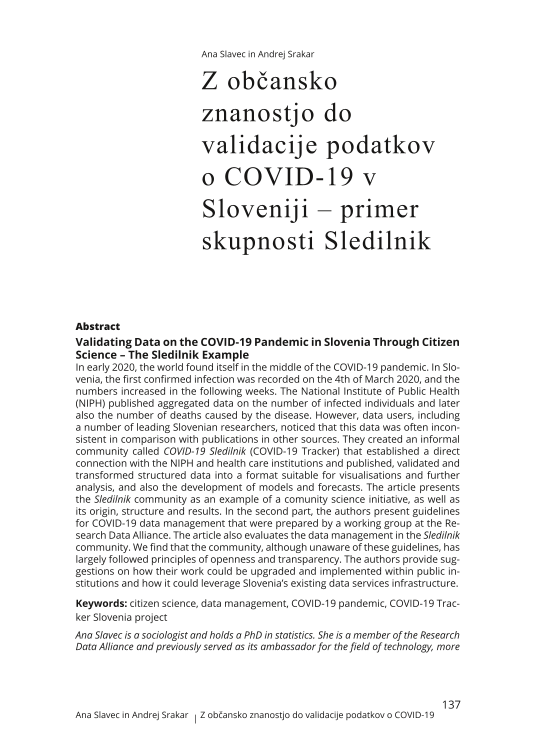In early 2020, the world found itself in the middle of the COVID-19 pandemic. In Slovenia, the first confirmed infection was recorded on the 4th of March 2020, and the numbers increased in the following weeks. The National Institute of Public Health (NIPH) published aggregated data on the number of infected individuals and later also the number of deaths caused by the disease. However, data users, including a number of leading Slovenian researchers, noticed that this data was often inconsistent in comparison with publications in other sources. They created an informal community called COVID-19 Sledilnik (COVID-19 Tracker) that established a direct connection with the NIPH and health care institutions and published, validated and transformed structured data into a format suitable for visualisations and further analysis, and also the development of models and forecasts. The article presents the Sledilnik community as an example of a comunity science initiative, as well as its origin, structure and results. In the second part, the authors present guidelines for COVID-19 data management that were prepared by a working group at the Research Data Alliance. The article also evaluates the data management in the Sledilnik community. We find that the community, although unaware of these guidelines, has largely followed principles of openness and transparency. The authors provide suggestions on how their work could be upgraded and implemented within public institutions and how it could leverage Slovenia’s existing data services infrastructure.




